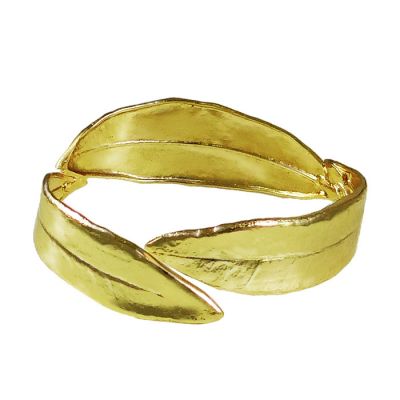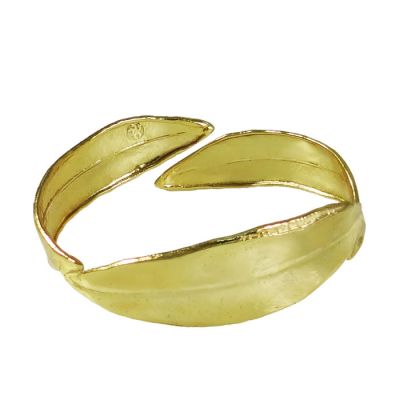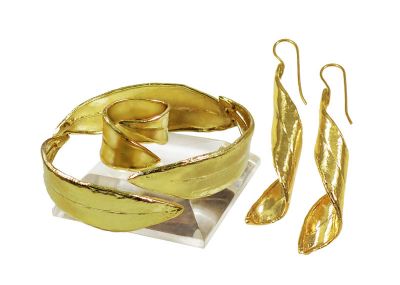Inspired by the olive tree and its great history in the greek culture, we created a bracelet, copy of an actual olive leaf. In this exceptional jewel we joined three leafs together in a special way, in order to fit on your wrist naturally and make it easier for you to adjust it depending on where you want to wear it. A piece of art made out of gold-plated 24K brass, for the admirers of the greek nature. The gold-plating is nickel free.
Dimensions: 6cm x 7cm
Take a look at the ring and the earrings, that complete the set with the bracelet.
All prices include VAT.
The olive tree is considered a symbol of peace, fertility, wisdom, prosperity, victory and the Olympic ideals. The ancient Greeks and especially the Athenians worshiped the olive tree, as it was the sacred tree of the city and of goddess Athena.
The edible olive has been cultivated for at least 5,000 to 6,000 years, with the most ancient evidence of olive cultivation having been found in Syria, Palestine and Crete. It is possible that Phoenician traders brought the olive seed in Greece and the Greeks were the first people who cultivated olive trees in the European Mediterranean area.
According to Greek mythology, Goddess Athena competed with Poseidon for the patron deity of Athens and the name of the city. They agreed that each one would give the Athenians one gift for them to choose the gift they preferred. Goddess Athena offered them the first domesticated olive tree.The Athenians accepted the olive tree and named the city after the goddess.
The olive has both nutritional and medicinal properties. Homer labeled the olive tree as "pure liquid gold". Hippocrates, who is widely considered to be the "Father of Medicine", called it "the great healer".
One of the seven wonders of the ancient world, the gold and ivory statue of Zeus, sculpture of the ancient sculptor Phidias, was crowned with an olive branch. Goddess Athena was depicted on the athenian coins, with an olive wreath on her helmet and an olive branch and the prize for the winner at the ancient Olympic Games was an olive wreath also known as "kotinos".
No posts found











